ACCESS FOR ALL







Sue Dunlap








Sue Dunlap
PRESIDENT AND CEO
Maggie Abrego
VICE PRESIDENT, DEVELOPMENT
Lisa Anderson
SENIOR DIRECTOR, BOARD RELATIONS AND STRATEGIC OPERATIONS
Susan Bradley
CHIEF OPERATING OFFICER
Danny Chen
VICE PRESIDENT, FACILITIES AND SECURITY
Fernando Delgado
SENIOR DIRECTOR, REVENUE CYCLE AND INSURANCE
Brenda Guerrero, LVN
VICE PRESIDENT, HEALTH CENTER OPERATIONS
Michelle Horejs, MPH
VICE PRESIDENT, TRAINING AND SPECIAL PROJECTS
Serena Josel
CHIEF COMMUNICATIONS OFFICER; VICE PRESIDENT, ABORTION ACCESS
Greg Lepine, MBA, CPHIMS
VICE PRESIDENT, INFORMATION TECHNOLOGY
Andrea Leti, MEng
CHIEF ADMINISTRATIVE OFFICER
Kym McKay
SENIOR DIRECTOR, OPERATIONS AND PROCESS IMPROVEMENT
Kevin Oliver
CHIEF LEGAL COUNSEL
Linda Pahl, MBA, CMA
CHIEF FINANCIAL OFFICER
Yesenia Real, SPHR, SHRM-CP
VICE PRESIDENT, HUMAN RESOURCES
Nicole E. Ressa
CHIEF EDUCATION AND PROGRAMS OFFICER
Rachel Rodriguez, SHRM-CP
CHIEF PEOPLE AND CULTURE OFFICER
Sonia Solin
VICE PRESIDENT, BUSINESS DEVELOPMENT, PARTNERSHIPS AND BRAND
Tracey Sologub, RN
VICE PRESIDENT, CLINICAL SERVICES AND QUALITY
David Speiser, MD, FACOG, FACS
CHIEF MEDICAL OFFICER
Margot’ Taylor
VICE PRESIDENT, STRATEGY AND ADVOCACY
Remelyn Valera MSN, FNP-C
SENIOR DIRECTOR, CLINICAL SERVICES
Celinda M. Vázquez
CHIEF EXTERNAL AFFAIRS OFFICER
Bess L. Walkes
CHIEF PARTNERSHIPS OFFICER

Navigating this moment in history — one that’s filled with uncertainty and uneasiness around sexual and reproductive health — is not easy.
I want to honor the trust that hundreds of thousands of patients place in us each year to provide compassionate, high-quality care. Patients who — despite every attack on their bodily autonomy — decide what is best for them and for their future.
In a state like California, we have the privilege and responsibility to be here for those who need us. We do not take our role for granted.
With your support, PPLA continues to be a leading provider of sexual and reproductive health care and education in Los Angeles. We’ve launched innovative programs thanks to our partnership with organizations like Cedars-Sinai Medical Center, LAUSD, Department of Public Health, Legal Aid Foundation Los Angeles, and UCLA Center on Reproductive Health, Law and Policy. Together, we will continue to be here for our communities — no matter what.
When I reflect on our collective work in the past fiscal year, I am filled with pride and gratitude for a community that never fails to show up, even when the road ahead may seem challenging. As you read our accomplishments in this report, I hope you feel the same.
Thank you for your steadfast support. As we continue pushing for a more just and equitable future, I am grateful to have you by our side.
Sue Dunlap President and CEO
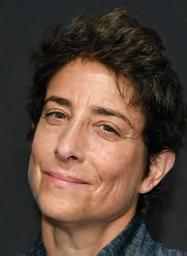

On behalf of the Board of Directors, we want to thank you for being with us. Your unwavering support of our commitment to “Care — No Matter What” is critical as we face the challenges that lie ahead.
As we write this letter, 20 states have abortion bans in place, impacting millions of people. Moreover, the harm of abortion bans and restrictions fall hardest on communities that already face structural barriers to care, including communities of color, LGBTQIA+ communities, people with disabilities, migrant communities, and young people.
Despite these enormous challenges, PPLA’s 700+ employees — in locations stretching from Santa Monica to Pomona, and from Long Beach to Palmdale — show up to work every day to provide expert, compassionate, and judgmentfree care and education. We thank them for their fearlessness, dedication, and commitment.
As we look to the future, we are clear-eyed. We will fight for our patients and staff, support our most vulnerable communities, and provide people with the empowering tools they need to determine the course of their lives.
The PPLA team couldn’t do this work without you. Thank you.
In this together,


Carolyn Strauss and Renée Delphin-Rodriguez Co-Chairs, Board of Directors
CO-CHAIRS
Renée Delphin-Rodriguez, JD
Carolyn Strauss
Rupa Balasubramanian
Cindy Capobianco
Dr. Edison Cartwright de Mello
Lauren Edgerton
Gisela Friedman
Dana Guerin
Dr. Peggy T. Gutierrez
Kristi Henderson
The Hon. Sydney Kamlager-Dove
The Hon. Abbe Land, Secretary
Hannah Linkenhoker
Yvette Martinez
Estevan Jose Montemayor
Amarita Natt, PhD
Kay Sheth
Amelia Warren Tyagi, Treasurer
The Hon. Rick Chavez Zbur, JD
EMERITUS ADVISORY COUNCIL
Cornelia Beezie Daly, MD
Arthur J. Ochoa, JD
Dr. Sherry Ross, MD
Jason D. Russell, Esq.
Donna L. Schweers, Vice Chair
Martha P. Swiller
Catherine L. Unger
We believe in a future where everyone has access to safe and compassionate reproductive health care, including abortion — no matter what.
In June 2024, the U.S. Supreme Court rejected on procedural grounds a politically motivated attack on access to mifepristone, which is commonly used in the provision of medication abortion. Mifepristone is safe, effective, and has been used by more than 5 million people in the U.S. for abortion and miscarriage care since the FDA approved it more than 20 years ago. Today, 63% of abortions provided in the U.S. are medication abortions.
As one of the largest providers of abortion in the country, we understand how critical access to medication abortion is to patients. With 23 PPLA health centers providing medication abortion, we typically offer patients an appointment on the same or the next business day. In 2023, we expanded our medication abortion practice to 11 weeks of pregnancy — based on medical guidelines and best practices. We also expanded the follow-up options available to medication abortion patients — including both in-clinic and telehealth options — to best meet their needs and reduce barriers to care.
PPLA is proud to be among the few providers offering abortions up to 24 weeks of pregnancy in LA County, which includes patients facing pregnancy complications and genetic anomalies. In December 2023, we opened our second health center in Long Beach, which is dedicated to providing abortion, including abortion later in pregnancy. Long Beach is an ideal location for expanded abortion services since it is located 18 miles from LAX airport and 4.5 miles from Long Beach airport, making it easily accessible for outof-state patients. This expansion also supports our training program with Long Beach Memorial Medical Center.
With Roe v. Wade overturned, medical residents can no longer receive abortion training in states where the procedure is outlawed. We continued to grow our partnership with institutions like Cedars-Sinai, UCLA, and Kaiser Permanente to ensure a strong cohort of doctors, including those from out-of-state, are trained to provide the full range of sexual and reproductive health care, including medication abortion, procedural abortion, and miscarriage management.
I often think to myself, ‘What will happen to patients if they don’t feel safe while receiving care?’ As providers, our primary duty is to be there for our patients. We want them to know that PPLA clinics are a safe haven.
—PPLA HEALTH CENTER STAFF
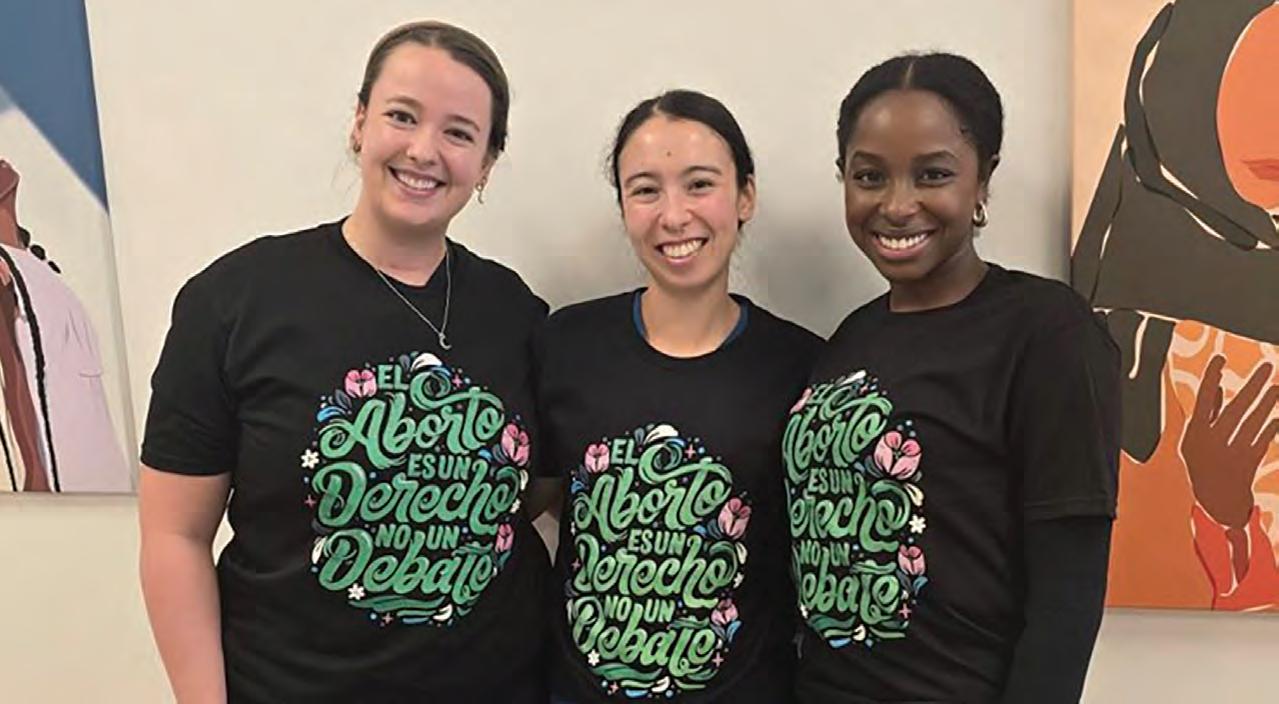
Cedars-Sinai’s OB-GYN medical residents at PPLA’s Inglewood Health Center
53,089 Emergency contraception
5,825 Cervical cancer screenings
452 Vasectomies
351,837 Calls answered
9,517 IUDs and implants
159,683 Birth control pill packs
23,932 Abortions
472,074 STI tests
777,300 Condoms
263,976 Patient visits
4,987 Breast exams
18,510 Rapid HIV tests
86,350 Pregnancy tests
97 Prenatal care visits
19,134 Birth Control Shots
4,698 Calls to Teen Call Line

3,568 Student visits at Wellbeing Centers
1,520 Service visits via PPDirect
7,148 Patients who received care via telehealth
1,475 Unique patients via PPDirect
26 High School campuses with Wellbeing Centers
2,200 Behavioral health sessions for teens and adult
We believe in a future where everyone has convenient access to the care they need — in their communities, schools, and online.
Through Wellbeing Centers (WBCs) in partnership with the Department of Public Health, PPLA continued to offer clinical services to more students on high school campuses, strategically located in underserved areas across LA County. Our WBCs provided reproductive and sexual health care and information on campus, while destigmatizing access to services by making it convenient for young people to get the trusted care they need without judgment.
At our Compton and Inglewood health centers, PPLA offered free behavioral health services — up to 16 weeks of therapy sessions — for adults experiencing mild to moderate mood disorders.
We also continued to expand behavioral health care for teens last year through our high school WBCs. PPLA offered free behavioral health care at 14 WBCs, in-person and via telehealth when schools were closed. This vital program reduces the stigma surrounding mental health and increases access to services for underserved populations who may face barriers to care.
Through the Teen Call Line, PPLA continued to connect more teens with clinical staff and mental health specialists who share information on sexual, reproductive, and mental health. Teens asked questions about their health, learned how to access health resources, and made appointments to receive care at a PPLA health center. In addition, the Teen Call Line team screened callers for behavioral health needs and either provided resources in their geographic area or made appointments for students at WBCs in their schools — providing another access point for teens seeking mental health support.
In my early teens, my parents would openly have ‘uncomfortable talks’ regarding sexual and reproductive health. I saw many of my friends who went through a teen pregnancy because they did not have the knowledge or the resources to prevent pregnancy. Now that I work with many young people and adults, one of my favorite things to do is educate and inform our patients regarding ALL birth control available to them, its importance, and proper use.
—PPLA HEALTH CENTER STAFF
Telehealth reduces barriers for patients by eliminating a trip to the health center and offering greater flexibility. In 2024, PPLA clinicians began providing birth control, emergency contraception, and UTI medication through the Planned Parenthood Direct mobile app. After downloading the app, patients complete a health questionnaire outlining their needs. A PPLA clinician reviews the request and can follow-up with a message in the app if they have any additional questions. If appropriate, the medication is then directly shipped to the patients discreetly or sent to the local pharmacy for pick up.
We believe that access to comprehensive and medically accurate sex education is vital for young people to make decisions about their bodies and their futures. Our programs create a safe space for learning where no question is too embarrassing.
In 2023-24, PPLA Peer Advocates — 78 high school students from 6 schools — provided sexual health information in their schools and communities. They met with PPLA educators weekly to discuss topics such as sexual and reproductive health, social anxiety, and stress management. They also underwent training on STI stigmatization and sensitivity, communication skills, and advocating for oneself. Through such meetings and trainings, PPLA Peer Advocates acquire skills that are critical to a young person’s early experiences with the health care system, which can greatly influence their relationship with their personal health and wellbeing. They also gain confidence and public speaking skills and forge bonds with each other that last far beyond the program.
PPLA continued to deliver training programs for middle and high school teachers, Department of Public Health educators, and other youthserving professionals to ensure that more people are skilled in providing age-appropriate, nonjudgmental sexual and reproductive health education and support to young people. These trainings included topics such as how to provide information regarding safe and confidential access to services, the importance of supportive LGBTQIA+ inclusive environments, navigating teens’ access to the internet, and how to answer difficult questions.
In 2023, PPLA started a new education program focused on reaching youth in nontraditional settings, including young people who are unhoused, in foster care, or involved with the justice system. In its first year, the new team of community educators, who speak English, Spanish, and Vietnamese, met more than 3,500 young people through various community events and outreach programs. We partnered with community-based organizations working with young people to provide vital health information and rights-based sexual health education.
After conducting a session on STIs, a Spanish-speaking student experiencing symptoms came to me because they were worried to receive services due to their immigration status and financial issues. I told them about our services and also spoke about FPACT (California’s family planning program). They were so thankful to speak to a trusted adult and know that Planned Parenthood could help.
—PPLA EDUCATOR
78 Peer Advocates
640 Youth-facing professionals trained
58,925 People reached through high school clinics, Teen Call Line, and school/ community outreach
5,413
Students received sex education from PPLA health educators
11,487
Students reached by Peer Advocates
3,679
Young people reached through the new Community Education program
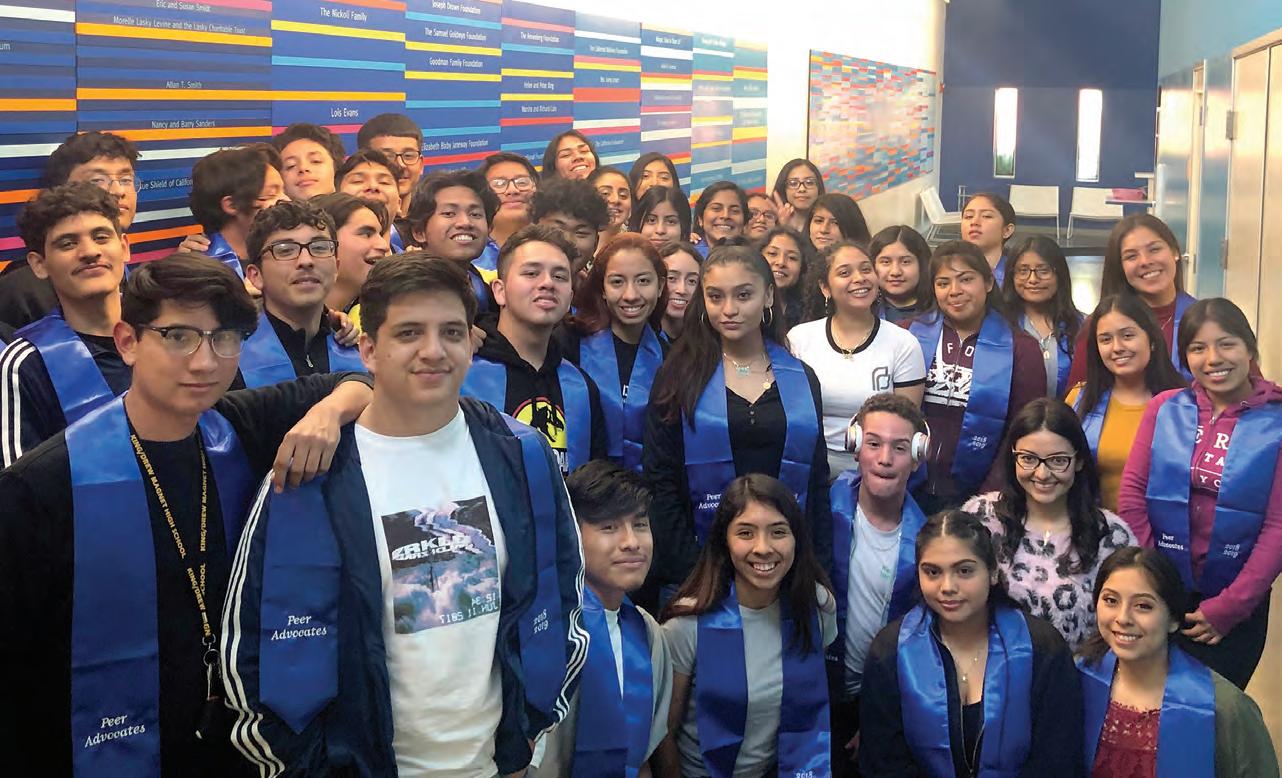
61
Patients who received gender-affirming hormonal therapy
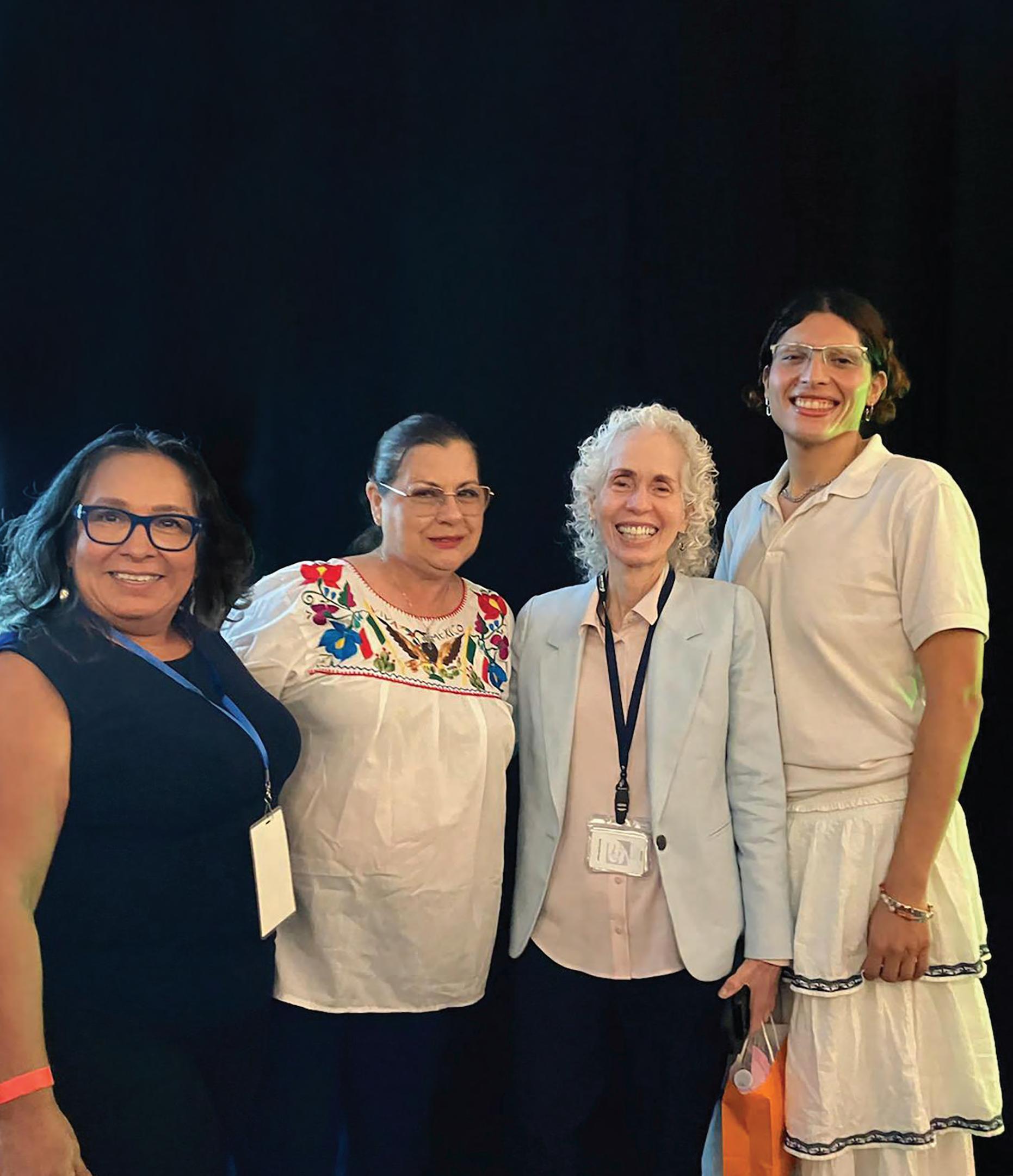
69%
Patients living at or below the federal poverty line
30,486
People reached by Promotoras
5,039
People reached by BHI Educators
In this post-Roe world, we believe that a better future is possible where conversations around access to reproductive health care center equity. Everyone deserves to make their own personal medical decisions free from stigma, shame, or discrimination.
PPLA’s Black Health Initiative (BHI) continues to offer a broad range of clinical services including prenatal care and behavioral health care. PPLA’s BHI educators also conducted community education and outreach on sexual and reproductive health, as well as accessing PPLA services.
A key highlight of this program has been the Medical Legal Partnership (MLP) with Legal Aid Foundation of Los Angeles (LAFLA) and UCLA Center on Reproductive Health, Law and Policy. Staff from both organizations provide free legal services to patients and other community members. This is the first MLP with a Planned Parenthood affiliate in the country. Since the partnership began in February 2023, the MLP has opened 83 cases supporting patients facing eviction, loss of Section 8 vouchers, family law and custody matters, and other legal issues.
PPLA’s Promotoras Comunitarias continue to provide education to parents in Spanish to help strengthen parent engagement and encourage healthy behaviors among teens. Promotoras’
innovative and culturally competent education program features sessions on sexuality, gender, contraception, STI/HIV prevention, anatomy, selfesteem, LGBTQ acceptance, and parent-child communication. At community events held by the county and city officials, Promotoras directly educated the public about PPLA’s clinical and education services across the county. They also reached into nontraditional settings, with a regular presence in local embassies and consulates. For example, as visitors wait for their appointment, Promotoras provide education about important sexual and reproductive health care services, such as cervical cancer screening.
States across the country are restricting access to gender-affirming care – following the same political playbook that led to the overturning of Roe v. Wade. By offering gender-affirming hormone therapy to adults at our Long Beach Health Center, PPLA helps to address health inequities faced by transgender and non-binary people by providing a safe and trusted space to access care. We recently expanded our genderaffirming hormone therapy staff, enabling us to serve even more patients.
Through the Promotoras Comunitarias program, we reach a demographic that is often ignored. As a Latina and a daughter of immigrants, I experienced firsthand the lack of education and resources my parents had regarding sexual and reproductive health, including being unable to afford medical services or insurance. With this program, we offer education, resources, and skill-building about sexual and reproductive health to communities that I grew up in. —PPLA PROMOTORA
We are living in a moment where the basic right to make decisions about our own bodies is constantly under attack. To protect and expand access to reproductive health care and education, we build strong relationships in our community and with leaders at all levels of government — local, state, and federal.
Every day abortion opponents protest outside PPLA health centers, harassing providers and attempting to shame or confuse our patients. To keep our staff and patients safe, we invested in several capital projects, including perimeter walls for health centers, deterrent landscaping, and enhanced video security monitoring. At the same time, we continued to work closely with local elected officials, such as the LA County Sheriff’s Department, LA Police Department, City of Los Angeles, and local municipalities to ensure that they respond more quickly when our opponents cross the line.
PPLA worked closely with critical community coalition partners to expand our collective work and advocate for people who are most impacted by restrictions to reproductive care. We also fostered the next generation of advocates by building student chapters at UCLA, USC and other college campuses. Many of these student volunteers were trained by PPLA to become advocate storytellers, sharing their experience of receiving care at Planned Parenthood. These stories complemented the advocacy we undertook with local and federal decision makers to move the needle on reproductive rights.
Through volunteer recruitment, storytelling, and community partnerships, Planned Parenthood’s Raíz program in Los Angeles County was dedicated to breaking down barriers to health care in the Latinx community by promoting justice, knowledge, and power. The Raíz program, which started in November 2023, recruited nearly 200 supporters, 8 volunteer leaders, and more than a dozen dedicated volunteers. The program also spearheaded the launch of a Planned Parenthood Generation Action Chapter at California State University — Northridge, engaging over 400 college students and strengthening our presence on campus. We also organized and engaged in over 30 events, helping us establish new and develop existing relationships with over 20 local and national community organizations including Pueblo Y Salu, TransLAtin@ Coalition, and HOPE.
3 Planned Parenthood Generation Action Chapters
1,216 Volunteer hours completed
200 Onboarded volunteers

Thank you, Planned Parenthood Los Angeles (PPLA), for always protecting and expanding reproductive freedom in Los Angeles County and beyond. As Chair of the Los Angeles Legislative County Delegation, I have been honored to work alongside PPLA to make sure that our county and our state remains a safe haven for all people seeking reproductive health care. Now more than ever, California must continue to be a leader in this struggle.
—ASSEMBLYMEMBER TINA MCKINNOR, CALIFORNIA DISTRICT 61
The Public Affairs team built a robust voter development program in the Antelope Valley. This encompassed various tools to nurture and activate Planned Parenthood supporters through registration, outreach, and ultimately turnout. The Public Affairs team knocked a total of 5,500 doors, registered over 500 individuals, and communicated with over 20,000 individuals through text messages.
We fiercely advocated for further advancements in reproductive health care and access to services in California. Legislative victories included ensuring state budget funding for Medi-Cal via Proposition 35, streamlining permitting for community clinics and addressing unjustified local interference in the opening of a new health center, updating penalties for violations of the FACE Act, and a much-needed update to FPACT, California’s family planning program.
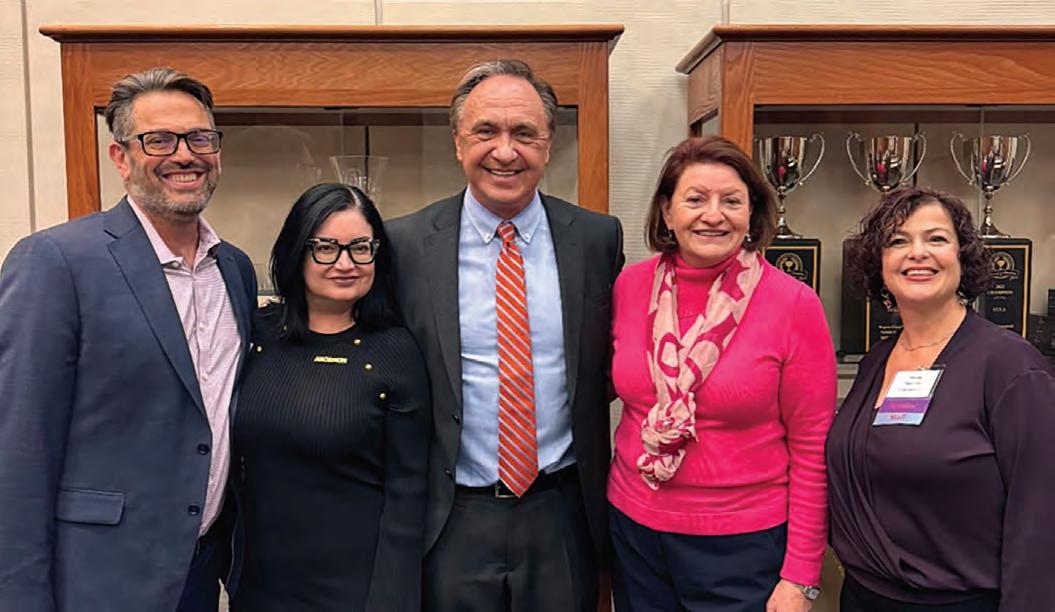





Our right to access sexual and reproductive health care, including abortion, should not depend on our zip code. Everyone — no matter where they come from — deserves to receive judgment-free and compassionate care.